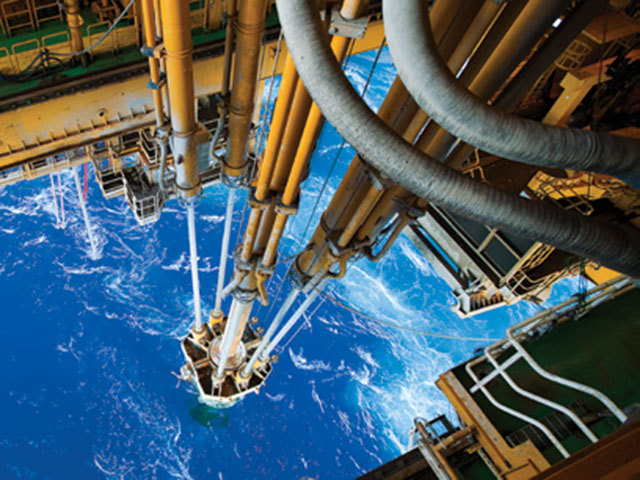
Equatorial Guinea has preliminarily awarded nine blocks in its EGRonda 2019 licence round, announcing the results at the Gas Exporting Countries Forum (GECF) under way this week in Malabo.
Lukoil was awarded the EG-27 block, which was the renamed Block R. This had been held by Ophir Energy and was the home to the Fortuna floating LNG (FLNG) project. The company ran out of time with its plans to commercialise the gas resource and lost the licence at the end of 2018.
The Ministry of Mines and Hydrocarbons has said it aims to sign production-signing contracts (PSCs) as soon as possible. This was demonstrated by the slimmed down requirements for bidders, with all pre-qualification requirements dropped and signature bonuses’ minimums set at $1 million.
Once PSCs are signed, companies will have two years to carry out initial exploration work. After this period has passed, they will choose whether to proceed with the drilling of an exploration well or the relinquishment of the licence.
The big winner was Vaalco Energy, which has previously focused on Gabon. The US-based company, which listed in the UK in September, won participation in four blocks: EG-03, EG-04, EG-19 and Block P. The first three of these areas are onshore in the Rio Muni Basin, while the last is offshore.
A statement from Vaalco said it would not hold participating interests in the three onshore blocks, but it had held preliminary discussions with Levene Hydrocarbon. Under these, Vaalco would serve as a contract operator.
Vaalco won the areas in consortium with Levene and state-owned GEPetrol. The company had bought a 31% stake in Block P in 2012 from Petronas Carigali. It had been working on a farm-out agreement for some time, saying in its recent third quarter results that the proposed partner would “cover all or substantially all” of the costs of drilling an exploration well.
The minnow producer said it would serve as the operator of the three onshore blocks subject to discussions and to Levene taking some of Vaalco’s 31% stake in Block P. No binding agreements have been struck and there is no certainty that a deal will be concluded, it said.
Levene, a Nigerian company, confirmed the allocation of the four blocks, noting that Block P had 84 million barrels confirmed on the area. Vaalco has put its 31% stake as having net contingent resources of up to 8.2mn barrels. EG-03 and -04 had previously been allocated to Elegance Power in 2013.
Russia’s Lukoil was awarded EG-27 in the Niger Delta Basin, Noble Energy EG-09 in the Douala Basin, Africa Oil EG-18 in the Rio Muni and Waltersmith and Hawtai Energy EG-23 in the Niger Delta. GEPetrol was a partner on each of the blocks and won EG-28, in the Rio Muni, on its own.
Lukoil’s block borders ExxonMobil’s in the northwest of the offshore, while Noble has picked up a block next to its Aseng and Alen fields. Africa Oil’s block is to the north of Kosmos Energy’s EG-24 and Block W, while the Waltersmith block surrounds Marathon Oil’s Alba field and is the home of the Estaurolita gas find. The EG-28 block, awarded to GEPetrol, is in the south and was previously known as Corisco Deep and Block K.
According to the Ministry of Mines and Hydrocarbons, interest came from 53 companies, while 17 submitted bids and seven were awarded concessions. “This demonstrates that Equatorial Guinea can attract significant interest of investors … Hopefully, next year we will attract even more investments to our country,” Equatorial Guinea Minister of Mines and Hydrocarbons Gabriel Mbaga Obiang Lima said.
The country also signed deals on 15 mining blocks in the country, including seven areas going to Blue Magnolia and four to Oro Sac ACorp.
A note put out by Rystad Energy said the “drill or drop” policy was the most important feature of the Equatorial Guinea round. Even if companies opt to relinquish blocks after the two years are up, “the newly processed data with improved technology will certainly improve the prospectivity analyses of the blocks. Furthermore, discovered volumes that are deemed to be outside one company’s portfolio strategy could represent interesting investment targets for others.”
Production from the West African state has been declining since the early 2000s and this will continue, with no major projects due to start up on the horizon, Rystad’s senior analyst Palzor Shenga said in the note. Equatorial Guinea plans to hold a new round in 2020, Shenga continued, “but the fact that most of the blocks have been relinquished in the past is setting off some alarm bells”.
Updated November 29 with Rystad comment.

